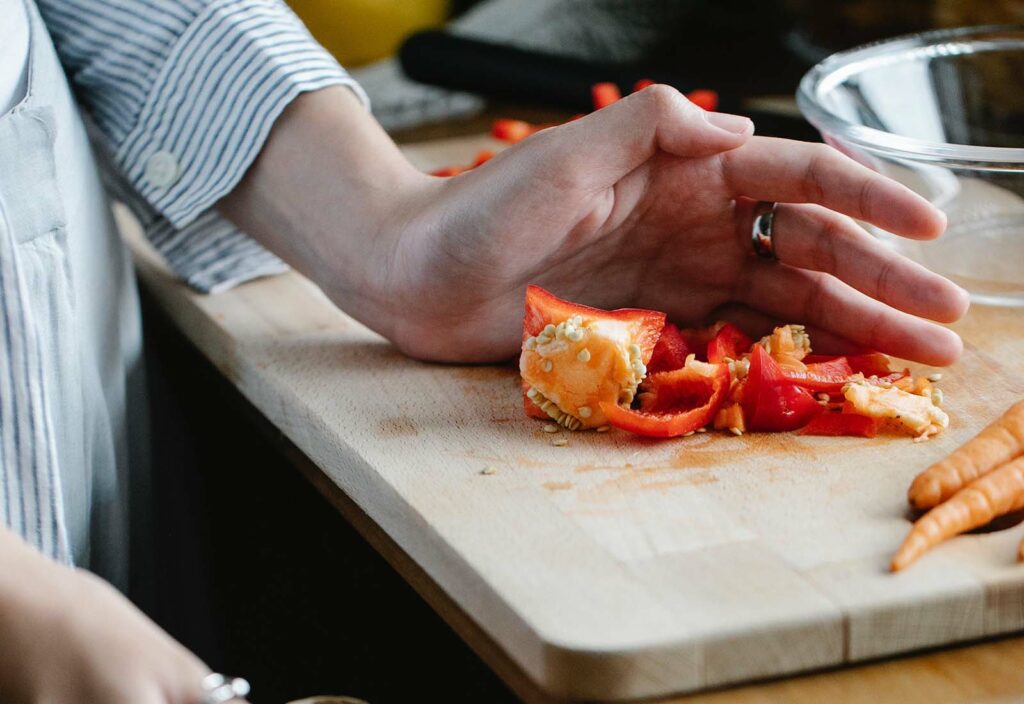
THE PUNCH RESOURCES
Potential Reuse of Kitchen Food Waste
Bali, Indonesia – November 8, 2023
The global food waste problem has reached alarming proportions, posing significant challenges on social, economic, and environmental fronts. Each year, an estimated one-third of all food produced for human consumption, equivalent to approximately 1.3 billion tons, is lost or wasted worldwide. This wastage occurs at various stages in the food supply chain, from production and distribution to retail and consumer levels. The vast scale of food waste is a sobering reality that underscores the need for immediate and collective action.
Based on the data resulting from research conducted by the Bali Environmental Education Center (PPLH) from January to May 2021, food waste in the Waste Processing Site (TPS) in Denpasar varies from 115 kg to 184.67 kilograms per TPS per day. The West Denpasar District records the highest accumulation, with 184.67 kilograms per TPS per day, while the East Denpasar District has the lowest, with 115 kilograms per TPS per day.
By reducing and managing kitchen food waste through sustainable practices such as composting or recycling, we can help alleviate these problems.
How does food waste impact the environment, and how can sustainable kitchen waste solutions contribute to addressing these environmental challenges?
Beyond its economic ramifications, food waste has grave environmental consequences. When food ends up in landfills, it decomposes and generates methane, a potent greenhouse gas that contributes to climate change. The production, transportation, and disposal of wasted food require significant natural resources, including water, energy, and arable land, thereby exacerbating resource depletion and environmental degradation.
Finding sustainable solutions for kitchen food waste is of paramount importance in today’s world. As the global population continues to grow, the environmental impact of food waste becomes increasingly significant. It not only strains our natural resources and contributes to greenhouse gas emissions but also exacerbates issues of food security. By reducing and managing kitchen food waste through sustainable practices such as composting or recycling, we can help alleviate these problems. Furthermore, addressing this issue encourages responsible consumer behavior, promotes eco-friendly habits, and supports a healthier planet for current and future generations.

Repurposing kitchen waste for creative dishes reduces waste and highlights culinary creativity.
How can businesses leverage sustainable food waste solutions
Businesses are increasingly recognizing the importance of finding and implementing sustainable solutions for their food waste. Beyond the ethical and environmental considerations, effective food waste management can have a positive impact on a company’s bottom line. Sustainable solutions like composting, food donations, and innovative waste reduction strategies not only reduce disposal costs but also enhance a business’s reputation. Consumers are becoming more conscientious about supporting eco-friendly companies, making sustainability initiatives a competitive advantage. Additionally, businesses that reduce food waste contribute to the broader goal of achieving a more sustainable and resilient food system, which is vital for the well-being of both the planet and society.
Sustainable practices and solutions for kitchen food waste often begin with the simple but effective step such as reusing kitchen food waste. Reusing kitchen food waste to create new culinary delights is an innovative approach that not only reduces waste but also showcases the culinary creativity of chefs and home cooks. This practice involves using food scraps and leftovers to craft new dishes or ingredients. For example, vegetable peels can be transformed into flavorful broths, and overripe fruits can be baked into delicious pies or jams. By utilizing every part of an ingredient, from root to stem, this approach not only minimizes food waste but also celebrates the diversity of flavors and textures that might otherwise be discarded. It’s a sustainable and delicious way to make the most of every ingredient in the kitchen and minimize our environmental impact.
EXPLORE THE PUNCH

